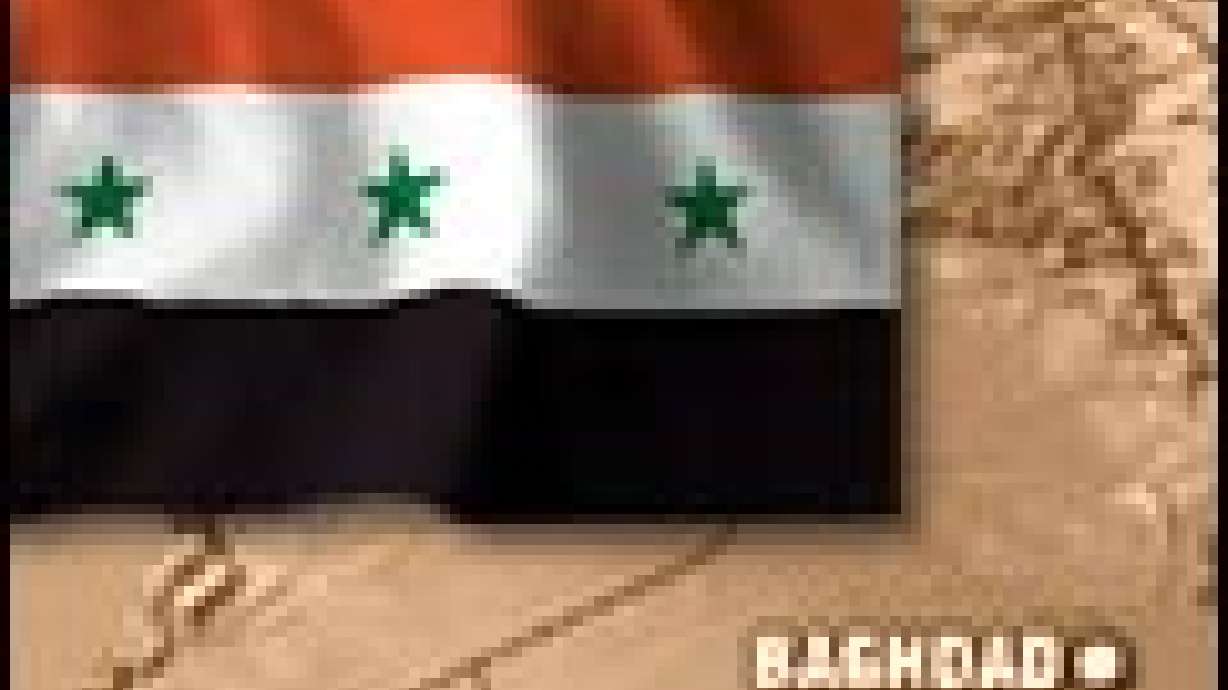Estimated read time: 2-3 minutes
This archived news story is available only for your personal, non-commercial use. Information in the story may be outdated or superseded by additional information. Reading or replaying the story in its archived form does not constitute a republication of the story.
NEAR THE KUWAIT-IRAQ BORDER (AP) -- Orange flames could be seen Thursday on the horizon in the direction of the southern Iraqi oil center Basra, and U.S. Defense Secretary Donald Rumsfeld said three or four oil wells may have been set afire.
Witnesses in Kuwait about eight miles south of the border spotted flickering flames on the horizon after a series of explosions shook buildings in the area and sent farm workers running outside and shouting in alarm.
The Arab satellite television channel Al-Arabiya reported that fires had erupted in Iraq's valuable al-Rumeila field west of Basra and just north of the Kuwaiti border.
Rumsfeld said the military was seeking additional information.
Associated Press reporter Ross Simpson, embedded with a Marine unit in northern Kuwait, said he was told by a battalion commander that "three oil wells have been torched" in Iraq. He said he had no firsthand confirmation of the report.
Even before the war began, the Pentagon expressed fears that Saddam Hussein had planned to sabotage Iraq's oil fields by booby-trapping wells so one person could blow them up.
A loss of oil from Iraq -- home to the world's second-largest reserves -- could crimp supplies for importing countries, and deny U.S. and British governments an asset they hope will help pay for postwar efforts.
Indeed, oil prices jumped Thursday after reports emerged about the well fires. Earlier, the Organization of Petroleum Exporting Countries had sought to calm oil markets by pledging to maximize output to make up for any disruption in crude exports from Iraq.
Iraq's Rumeila South oil field near the Kuwaiti border ranks as one of the country's largest, with more than 5 billion barrels in reserves. It is near a similar-sized field nearby known as Rumeila North, and both are on and near strategic pipelines that pump oil out of the country.
"Needless to say, it is a crime for that regime to be destroying the riches of the Iraqi people," Rumsfeld told a news conference in Washington.
In 1991, Iraqi troops destroyed more than 700 well heads in Kuwait, turning its oil fields into an environmental disaster, a desert inferno that took seven months to extinguish. It took Kuwait more than two years and $50 billion to restore its oil output to prewar levels.
Sabotage in Iraq could be much costlier, largely because its fields and pipelines are badly run down after a dozen years of U.N. economic sanctions. Its fields are also much farther from the sea than those in Kuwait, meaning a ready source of firefighting water might not be so easily available.
(Copyright 2003 by The Associated Press. All Rights Reserved.)









